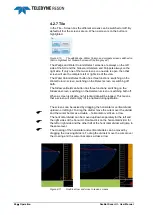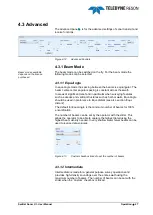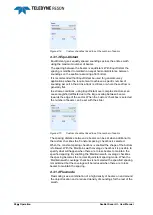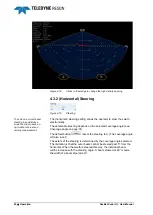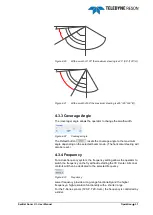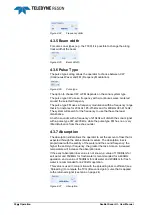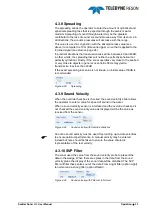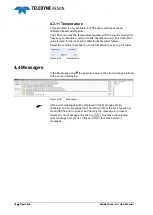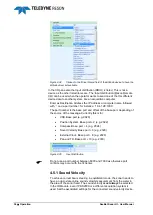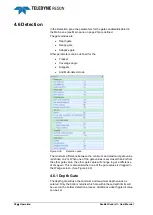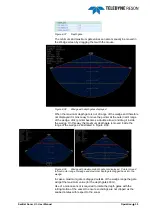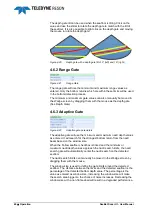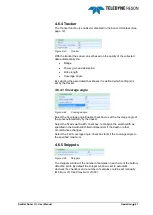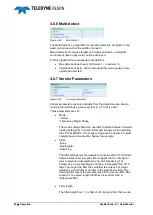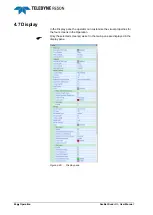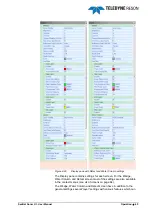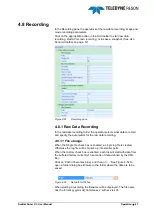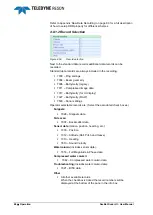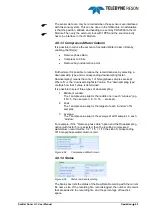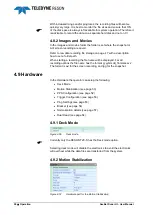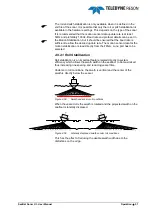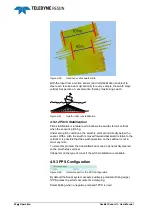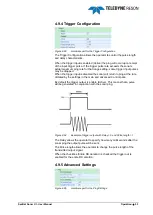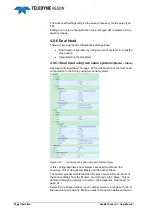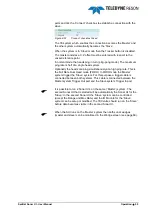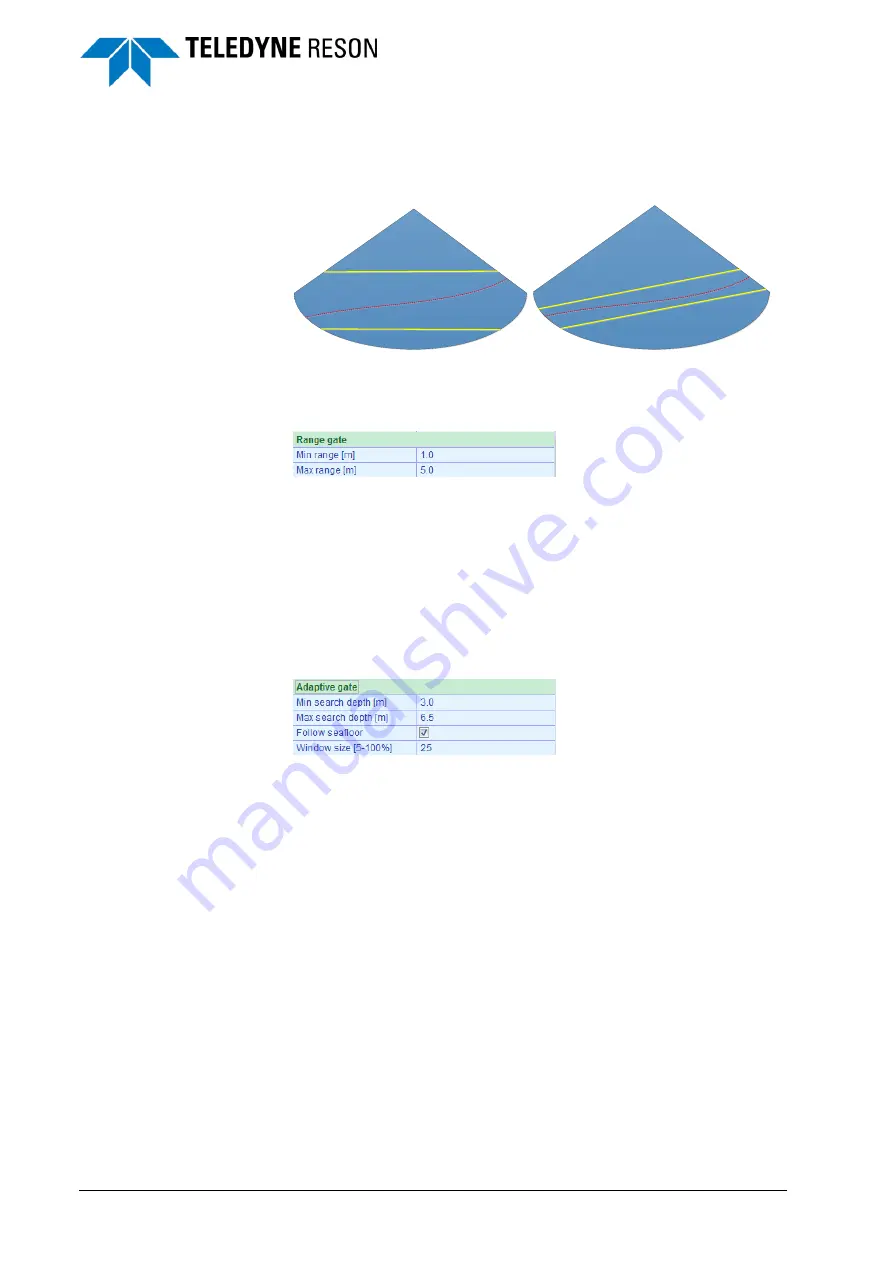
40
Operation
SeaBat Sonar UI - User Manual
The depth gate tilt can be used when the seafloor is tilting. Click on the
value and use the slider to rotate the depth gate to match with the tilt of
the seafloor. It is also possible to right click on the depth gate and moving
the mouse to rotate the depth gate.
Figure 4-40
Depth gate with a depth gate tilt of 0° (left) and 15° (right)
4.6.2 Range Gate
Figure 4-41
Range Gate
The range gate will use the minimum and maximum range values as
entered. Only the bottom returns which are within these limits will be used
in the bottom detection process.
The minimum and maximum gate values can also manually be moved in
the Wedge screen by dragging them with the mouse as the depth gate.
(See Depth Gate)
4.6.3 Adaptive Gate
Figure 4-42
Adaptive gate parameters
The adaptive gate will use the minimum and maximum nadir depth values
as entered. It will search for the strongest bottom return from the nadir
beam based on the window size.
When the Follow seafloor checkbox is ticked and the minimum or
maximum nadir depth values approach the nadir search limits, the nadir
search gate will automatically center the nadir search on the detected
seafloor
The nadir search limits can manually be moved in the Wedge screen by
dragging them with the mouse.
The window size is used to define the gate limits around the detected
seafloor. The distance between the limits and the detected seafloor is the
percentage of the detected bottom depth value. The percentage is the
value as entered as window size. Increasing the window size will make
the search area bigger so the chance of noise increases. Decreasing the
window size with a non-flat seabed will result in a degraded performance.

